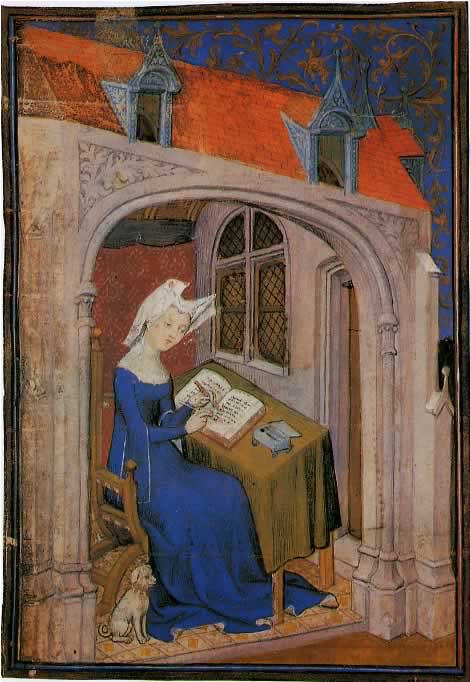
I just finished rereading a fascinating book by a monastic historian and classically-trained scholar, Jean LeClerq, The Love of Learning and the Desire for God. He details the educational system and literary culture of 9th-12th century monasticism, which deeply influenced Christian life and education during that time.

Back in the day, as in 10 centuries ago and earlier, monks wrote on sanded-smooth animal vellum, painstakingly copying and illuminating manuscripts. This page will give you an idea of the process. For a modern example, the breath-taking St John’s Bible is being crafted using the techniques of the medieval scriptoriums. Below is an illustration of St Mark from the Lindesfarne Gospels (7th-8th C).

Writing was a mentally and physically demanding process, and that was in addition to the actual composition of the prose. The monks didn’t just copy religious or specifically Christian texts either. To the monasteries we owe the continuity of historical records, as well as the preservation of Greek and Latin literature and philosophical texts. Why? The monks were educated through these texts, they found them beautifully written and believed many were inspiring for living life well–a truly classical education, enjoyed and used in the love of God.
While copying manuscripts required time and expense, there were often left over scraps of vellum available for the monks to copy down quotes from scripture or other texts on which they wanted to meditate personally. These scraps were often bound together into a florilegium, Latin from flos (flowers), legere (to gather).
A bouquet of literary flowers. The monks were such romantics.

We have examples of these quote collections which helps historians know what people were reading and who were the well-loved authors of that day. Above is a 14th century florilegium called the Rothschild Canticles.
Each Friday, I’m going to offer a digital florilegium of a few quotes from books I’m reading. These texts could be from scripture, contemporary and historical authors, dissertation reading on prayer and education, or just some random yummy-quote-goodness!

